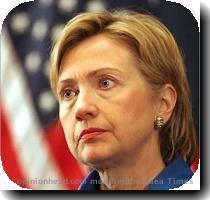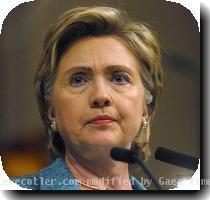Suicide blast kills at least 37 in Baghdad as Saddam cousin ‘Chemical Ali’ executed
By Chelsea J. Carter, APMonday, January 25, 2010
37 killed in Baghdad as ‘Chemical Ali’ hanged
BAGHDAD — Suicide bombers struck near three hotels popular with Western journalists and businessmen Monday just as Iraq announced the execution of Saddam Hussein’s notorious cousin known as “Chemical Ali.” At least 37 people were killed and more than 104 injured, security officials said.
The blasts — coming in a span of about 15 minutes in downtown Baghdad — came shortly before state television announced that Ali Hassan al-Majid had been hanged.
There was no claim of responsibility for the latest major attacks in Baghdad — about six weeks after a series of blasts killed 127 and brought outcry against Iraq’s government for repeated security lapses as U.S. troops withdraw.
Government spokesman Ali al-Dabbagh said the latest bombings “represent an extension” of the activities of insurgents linked to Saddam’s regime. But he stopped short of declaring the blast as possible revenge for the execution.
The first explosion struck at about 3:40 p.m. local time in the parking lot of the Sheraton Hotel, toppling high concrete blast walls protecting the site and damaging a number of buildings along the Abu Nawas esplanade across the Tigris River from the Green Zone.
Two other blasts followed minutes later, striking near the Babylon Hotel and Hamra Hotel, which is popular with Western journalists and foreign security contractors.
All officials spoke on condition of anonymity because they were not authorized to speak to the media.
According to initial tallies, 15 of the victims were at the Hamra, 14 at the Sheraton, and the remaining 8 died at the Babylon, including two policemen.
Outside the Sheraton, a high-rise tower with views of the Tigris River and the fortified Green Zone on the other side, the blast left a 10-foot-deep (three-meter) crater in the parking lot. Cars were torn apart by the spray of metal and glass, which littered the lawns and courtyards of the popular fish restaurants along the river.
The force of the explosion was strong enough to topple a row of 10-foot (three-meter) concrete blast walls along the road.
Iraqi police sealed the area and Iraqi helicopters circled overhead.
At the Hamra, two men in a car opened fire on guards at the hotel checkpoint, a third police official said. The guards took cover and returned fire when the car exploded, he said.
Baghdad’s top military spokesman, Maj. Gen. Qassim al-Moussawi, said suicide bombers were involved in all three attacks.
In Washington, Secretary of State Hillary Clinton condemned the attacks, saying they were an attempt to disrupt the upcoming March 7 parliamentary elections.
“We unfortunately believe there will be continued efforts by the terrorists, by al-Qaida in particular, to try to upend the commitment of the Iraqi people to a democratic future,” Clinton said.
The explosions came hours after an Iraqi security official defended a bomb-detecting device that Britain banned for export to Iraq because of questions about whether it works, saying it would be a “big mistake” to withdraw it from checkpoints.
Guards at checkpoints near both the Sheraton and the Hamra are equipped with the detectors.
The ADE651, made by the British company ATSC, is used at security points across Iraq, including outside the protected Green Zone that includes the Iraqi parliament and the U.S. and British embassies. Britain halted the export of the machine to Iraq and Afghanistan after a BBC report challenged its effectiveness.
The findings appeared to back up the U.S. military, which has had concerns about the device for months. In June, the U.S. military distributed a study using laboratory testing and X-ray analysis that found the ADE651 ineffective.
But Col. Hato al-Hashemi, a senior explosives expert at the Interior Ministry, said the estimated 2,000 devices used by Iraqi security forces would not be taken out of service.
“We have great confidence in this device,” al-Hashemi said. “They have proven their effectiveness in discovering and seizing many car bombs and cars that were loaded with explosives and weapons.”
The government spokesman al-Dabbagh confirmed the execution of “Chemical Ali,” but did not give other details or the precise timing of when it was carried out.
The execution took place about a week after he was sentenced to death for the poison gas attacks that killed more than 5,000 Kurds in the Kurdish town of Kurdish town of Halabja in 1988.
It was the fourth death sentence against him for crimes against humanity during the Saddam era.
_____
Associated Press Writer Sinan Salaheddin in Baghdad and Matthew Lee in Washington D.C. contributed to this report.
Tags: Baghdad, Bombings, Hillary Clinton, Iraq, Middle East, Ml-iraq, North America, Terrorism, United States

